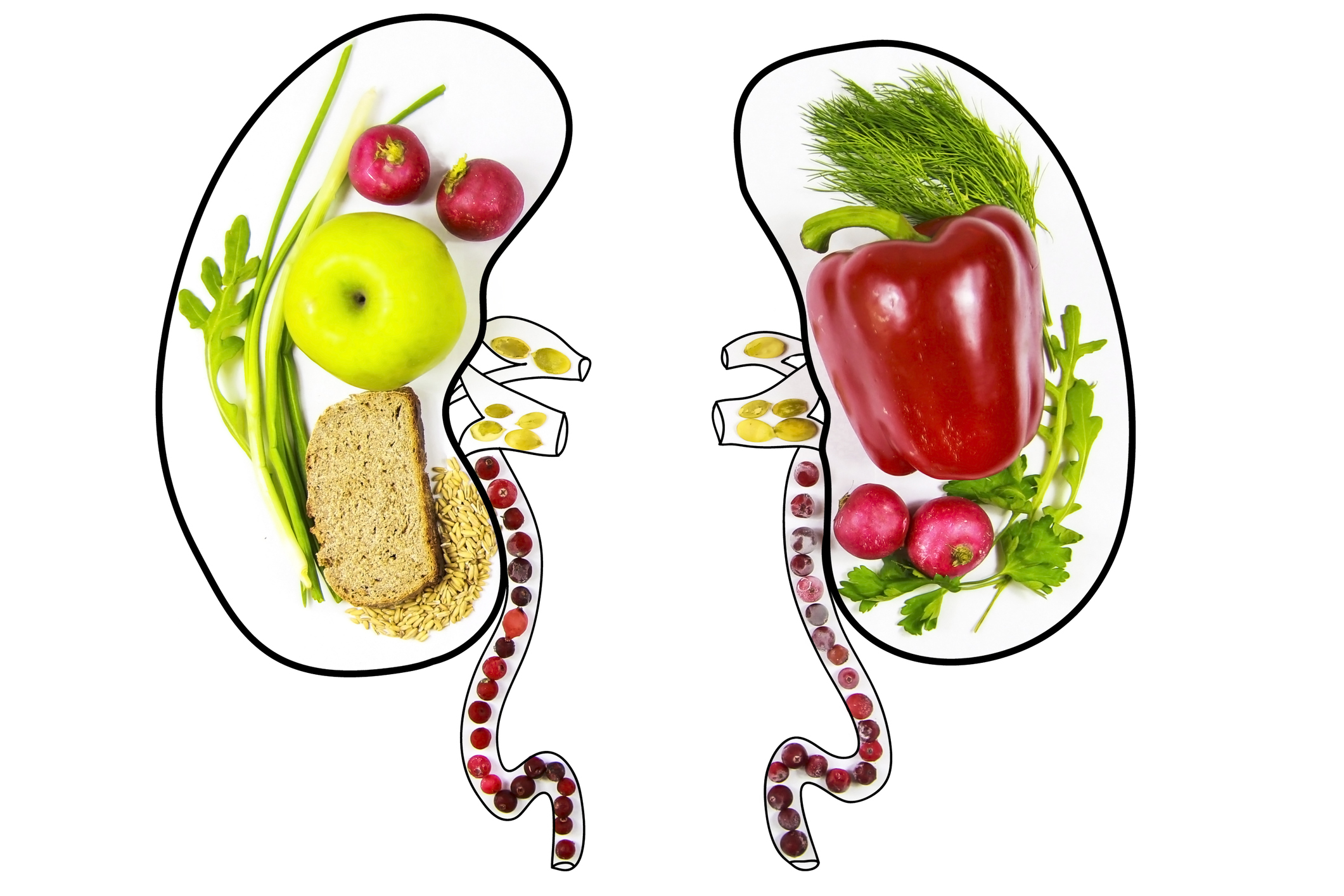By Fanny Sung Whelan, MS, RDN
Have you been diagnosed with hyperkalemia?
Hyperkalemia refers to a medical condition that occurs when the potassium level in your blood gets too high [1]. “Hyper” means “over or beyond”, and “-kalemia” means “the presence of potassium in the blood.” Hyperkalemia is a common diagnosis, and luckily most people have mild cases that are well tolerated, but even mild cases need to be treated to prevent more serious cases from occurring. If left untreated and severe hyperkalemia develops, which is defined by blood potassium levels of 7 mEq/L or higher, cardiac arrest and death can occur [2]. Fortunately, there are treatment options to prevent this from happening.
What causes hyperkalemia?
Hyperkalemia is generally caused by reduced renal function, such as acute or chronic kidney failure, glomerulonephritis (when the glomeruli that filter the blood of waste products get injured), lupus nephritis, or any condition that involves blockages in the urinary tract, such as urolithiasis (when stones form in the urinary tract) [2]. Also, people who have reduced kidney function are generally more sensitive to potassium-containing ingredients and medications. Salt substitutes that contain potassium can add a significant amount of potassium to the body, and medications such as some that help to control blood pressure like ACE inhibitors and angiotensin receptor blockers (ARBS), NSAIDS like ibuprofen or naproxen, and diuretics that spare potassium, can add more potassium to the body than needed [2].
Adrenal gland diseases can also lead to hyperkalemia. The adrenal glands produce some hormones, one of which is aldosterone. Aldosterone is the hormone that controls sodium retention and excretion, as well as potassium removal in the urine. If these glands are diseased or injured, that can affect the production of this vital hormone that helps your body stay in its sodium-potassium equilibrium [2].
What happens to your body when hyperkalemia occurs?
Potassium plays a crucial role in a number of important bodily functions, such as muscle movement, including smooth muscles found in your digestive tract, skeletal muscles that help you move your body, and your heart muscles, as well as signal transmission in your nervous system. Most importantly, normal potassium levels are what keep your heart beating regularly, and veering from normal ranges can disrupt this process. Mild hyperkalemia, which is usually identified by potassium levels from 5.1 mEq/L to 6.0 mEq/L, may not do too much to disturb your heart function, whereas moderate hyperkalemia, potassium levels of 6.1 mEq/L to 7.0 mEq/L, can disrupt electrical activity of the heart, and severe hyperkalemia, which is 7.1 mEq/L and higher, can completely stop the heart from beating [2].
Another important consequence of hyperkalemia is its effect on skeletal muscle movement. When the sodium-potassium pathway is disrupted, this can affect the movement of muscles, causing them to spasm, weaken or paralyze [3]. Although not immediately life-threatening by itself, this can cause extreme discomfort.
What are the symptoms of hyperkalemia?
Symptoms of hyperkalemia can be unnoticeable, if they appear at all [1]. If symptoms do occur, they are often mild or easily dismissed, such as weakness or fatigue, muscle pains and cramps [4], numbness and tingling. These symptoms can come and go over the course of many weeks or months [1]. In sudden or severe cases of hyperkalemia, you may have shortness of breath, heart irregularities, chest pain, nausea or vomiting. Sudden or severe hyperkalemia is a very serious condition which requires immediate medical treatment [1].
What role does nutrition play in preventing hyperkalemia? What can you do to keep your potassium within a healthy and safe range?
If you have been told you have hyperkalemia at any point, talk to your doctor about what your best options are for lowering your potassium levels. Be sure to tell your doctor about all of the medications you are taking, including over-the-counter medications, vitamins, and supplements [5]. Your doctor may suggest taking further action to keep your potassium in normal range:
- Follow a low potassium diet– There are certain foods that are higher in potassium that may be causing your hyperkalemia and need to be limited or avoided. Some of these foods are root vegetables such as potatoes and sweet potatoes, unless double-boiled, tomatoes, oranges, bananas, melons, and leafy greens, just to name a few. Either too much or too little potassium can be dangerous, so be sure to discuss with your healthcare provider how much potassium is right for you.
- Avoid salt substitutes that contain potassium– some salt substitutes contain potassium as an ingredient. These should be avoided by most people who have kidney disease. It is perfectly safe to use non-potassium-containing seasonings.
- Avoid herbal remedies and supplements– Unless your doctor has given you approval, it is best to avoid all herbal remedies and supplements, as these can have ingredients that can increase your potassium levels. Be sure to check with your healthcare provider if you decide you would like to start using any herbal remedy or supplement.
- Use water pills or potassium-binding medications– If potassium levels cannot be controlled with lifestyle changes, your doctor may want you to start certain medications that can help lower potassium.
- Water pills, or diuretics, help you remove potassium from your body by helping your kidneys make more urine, which removes more fluid from your body,
- Potassium-binders are medications that “bind” potassium in your gut and take it out of your body. They usually come in the form of a powder and are mixed with a little water. They can be taken with food or once a day. It is important to follow the instructions when taking these medications, as they can interfere with other medications you are taking [5].
Untreated Hyperkalemia can lead to abnormal and life-threatening heart rhythms, but with some dietary and lifestyle changes, it can be an easily manageable condition. If you’ve been told you have high potassium, talk to your doctor right away about what you can do to better control your potassium levels. He or she will be able to help monitor your levels and make sure you are able to control this condition.
References
- https://www.kidney.org/atoz/content/what-hyperkalemia
- https://www.medicinenet.com/hyperkalemia/article.htm
- https://emedicine.medscape.com/article/240903-overview#a4
- https://my.clevelandclinic.org/health/diseases/15184-hyperkalemia-high-blood-potassium
- https://www.kidney.org/content/six-steps-control-high-potassium




